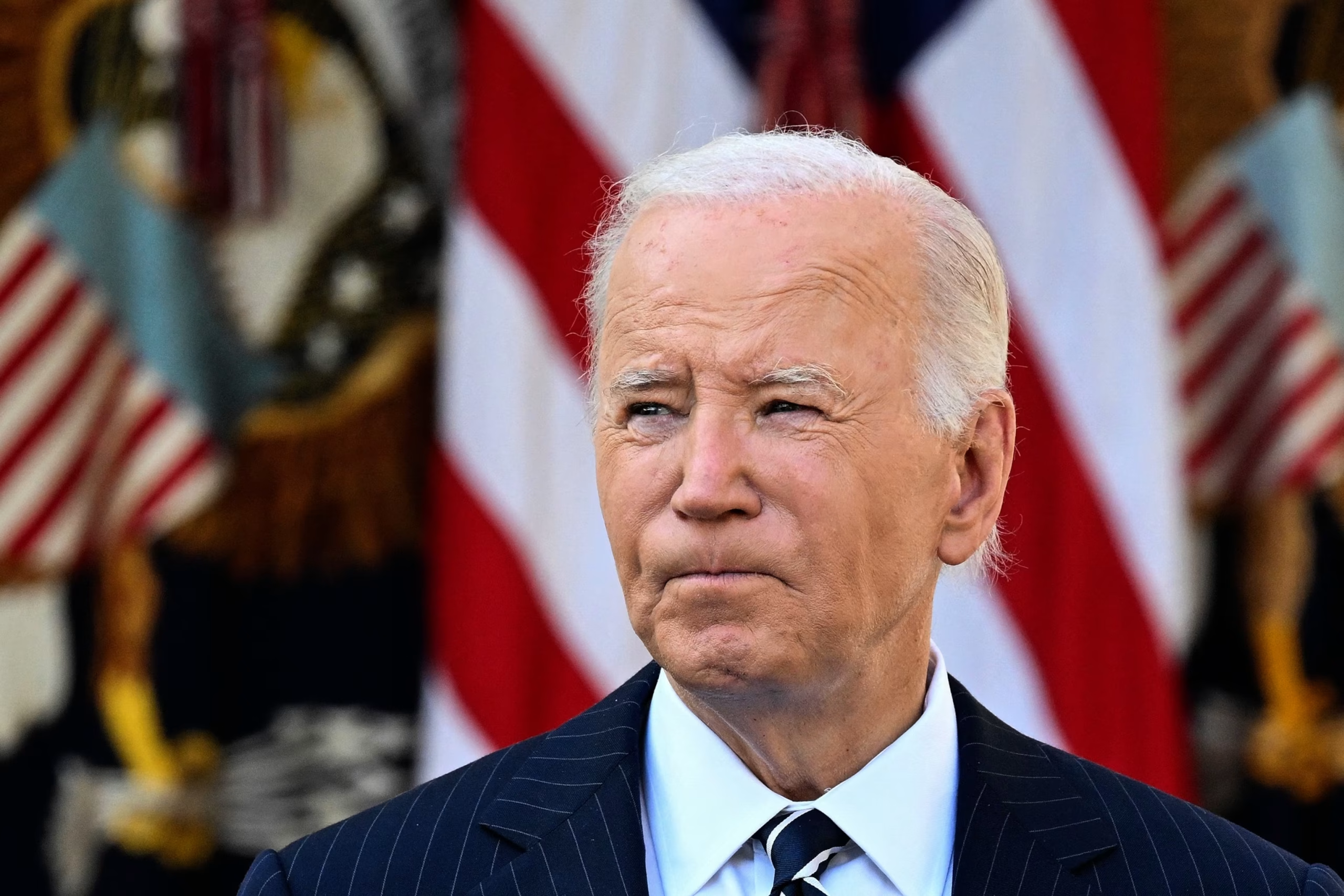Joe Biden on Democracy, NATO, Ukraine, and Trump: A Deep Dive into His BBC World Service Interview
The world is at a pivotal crossroads. As we navigate escalating geopolitical tensions, shifting alliances, and domestic political challenges, the words of those who have led global superpowers carry immense weight. Recently, former U.S. President Joe Biden sat down for his first post-presidency interview with the BBC World Service. Conducted in his home state of Delaware by veteran journalist Nick Robinson, the discussion spanned a wide range of critical issues—from the legacy of World War II and the future of NATO, to the brutal war in Ukraine and the turbulent American political landscape shaped by Donald Trump.
This interview is much more than a retrospective on Biden’s presidency; it is a candid, sometimes emotional reflection on the challenges facing democracy, the enduring importance of alliances, and what it means to lead a nation in turbulent times. Over the next few thousand words, we unpack Biden’s insights, anecdotes, and warnings—painting a vivid picture of a man grappling with the enormity of the moment.
VE Day and the Echoes of Sacrifice
The interview began with a poignant reflection on Victory in Europe Day—the 80th anniversary marking the defeat of Nazi Germany and the triumph of democracy in one of history’s darkest chapters. Biden’s connection to this legacy is personal and profound.
He said,
“My father’s generation, my mother’s generation, knew democracy was literally hanging in the balance.”
This was not empty rhetoric. Biden recounted attending a D-Day landing reenactment and visiting the American Cemetery in Normandy, where rows upon rows of white crosses mark the graves of thousands who gave their lives for freedom. He described seeing a father and son’s grave side by side and being saluted by a veteran who reminded him of the vital contributions women made during the war.
“She built the ships that got us here. The entire generation of women stepped up.”
This deep respect for the sacrifices made stands as a stark contrast to what Biden fears is a growing amnesia among today’s leaders.
“I think it’s being forgotten by leadership, a little bit.”
In Biden’s eyes, the lessons of VE Day and the values it represents—sacrifice, unity, and democracy—are urgently needed today as the world faces new threats.
NATO: A Lifeline for Global Stability
Central to Biden’s worldview is NATO. He called it “one of the smartest things we did after World War II,” highlighting the security and peace it has provided for nearly eight decades. Yet, there is a clear sense of alarm in his voice.
“There are people who fear the Atlantic Alliance is dying before our eyes. It’s a grave concern.”
Biden laid out why NATO matters—not just for Europe but for global stability. Without it, he warned, Russian and Chinese ambitions would go unchecked, destabilizing regions from the Mediterranean to Eastern Europe.
“If NATO didn’t exist, what would be happening in the Mediterranean? What about Russia and China’s military activity in that region?”
He recounted a recent G20 meeting where many leaders privately told him that the survival of NATO is “at stake” and that democracy itself is being challenged like never before.
Biden also addressed a recurring criticism in U.S. political discourse: the accusation that European allies are “freeloading” off American defense spending. He dismissed this outright.
“After 9/11, NATO allies stood with us. This alliance saves us money overall. It’s about strength in unity.”
His clear message: dismantling or weakening NATO would be catastrophic, not just for the U.S. but for the global order.
Ukraine: A Modern-Day Test of Resolve
The ongoing war in Ukraine looms large in Biden’s concerns. He drew a stark parallel between the conflict and the global struggle during World War II, calling the stakes “immense.”
When asked about the idea—championed by Donald Trump and others—that Ukraine should give up some territory to Russia to achieve peace, Biden was adamant.
“That’s modern-day appeasement. It won’t stop Putin.”
He described Putin’s ambitions bluntly: a desire to restore Russia’s dominance over former Soviet states and re-establish a Warsaw Pact-style sphere of influence.
“Putin can’t stand the collapse of the Soviet Union. He talks about Ukraine as ‘Mother Russia’ and believes he has historical rights over its territory.”
Biden fears that any concessions to Putin would embolden him, encouraging further aggression that could unravel the fragile peace in Europe.
“If NATO countries along Russia’s border start making accommodations, it will weaken the alliance from within.”
Yet, Biden balanced this with realism about the risk of escalation, especially given both NATO and Russia are nuclear powers. He recalled the preparations his administration made to respond aggressively if Putin pushed beyond certain limits but acknowledged the tightrope walked to avoid World War III.
On Donald Trump: America’s Values on the Line
Biden’s remarks on his successor, Donald Trump, carried a mixture of restrained diplomacy and clear criticism. He described Trump’s rhetoric—like talks about reclaiming Panama or Greenland—as “beneath America” and out of step with the country’s core values.
“America stands for freedom, democracy, opportunity—not confiscation or empire.”
He also pointed out that Trump does not affirm the NATO commitment that an attack on one member is an attack on all, a cornerstone of the alliance’s power and unity.
On Trump’s claims of success in his first 100 days, Biden responded with a reminder of the economic progress his own administration made, including record job creation and infrastructure investment.
“When I left office, we had created more jobs than any president in history in one term. The economy was strong, and we were building for the future.”
Biden’s tone conveyed both frustration and concern: frustration at what he sees as Trump’s damage to American standing and concern over the divisions it has caused domestically and internationally.
Democracy Under Siege: The Battle Continues
Perhaps the most sobering aspect of Biden’s interview was his frank discussion about the fragility of democracy itself. He said outright:
“There is a greater threat to democracy now than any time since World War II.”
He pointed to the rising doubts among European allies about the reliability of U.S. leadership and the expansion of authoritarianism worldwide. The retreat of democracy, Biden warned, is a global issue—not confined to one nation.
Domestically, Biden expressed a cautious optimism, believing that the Republican Party is waking up to the dangers posed by Trump’s approach.
“I’m less concerned now about democracy in the U.S. because I think Republicans are realizing what Trump is about.”
He stressed that democracy requires constant vigilance and that each generation must defend it.
The Decision Not to Run Again: Passing the Torch
A rare moment of personal candor came when Biden discussed his choice not to seek re-election in 2024. He described the decision as “hard” but necessary.
“When I started, I thought I was ready to hand things over to the next generation. But the pace of change made it difficult.”
He expressed no regrets, emphasizing the importance of a smooth transition and the need to prepare future leaders.
Personal Stories and the Power of Hope
As the conversation drew to a close, Biden shared moving stories from his visits to veterans and war memorials, reminding us that the fight for democracy is deeply human.
“The men and women who landed on those beaches knew they might never come home. They believed democracy was worth dying for.”
Biden also highlighted the vital role women played in the war effort—a point often overlooked.
“I met a veteran who said, ‘Thank her.’ She built the ships that brought us to victory.”
His final message was clear: despite the threats we face, hope remains.
“Hope has always triumphed over fear. That is the lesson we must carry forward.”
What This Means for the Future
Joe Biden’s interview with the BBC is a wake-up call. It reveals a leader grappling with the enormity of global challenges while still holding onto hope and faith in democratic institutions.
For business leaders, policymakers, and citizens around the world, his reflections underscore the urgency of defending alliances like NATO, supporting Ukraine’s sovereignty, and protecting democracy at home.
The world has changed dramatically since VE Day 80 years ago, but Biden reminds us that the values forged in that struggle remain our best guide through the uncertainty ahead.
Final Thoughts
In this moment of global uncertainty, the words of Joe Biden carry profound weight. His call to defend democracy, maintain alliances, and stand up to authoritarianism should resonate far beyond political borders.
As we face new challenges in international relations and domestic governance, Biden’s interview is a powerful reminder that leadership matters—and so does the courage to defend what we hold dear.
CEO Today Magazine will continue to provide exclusive insights and deep analysis of world leaders and global affairs. Stay with us for comprehensive coverage of the issues shaping our future.
For more exclusive insights on technology, trust, and the future of human agency, read our in-depth interview with Reid Hoffman: Reid Hoffman on AI, Tech Trust, and the Future of Human Agency — Exclusive Insights from BBC Hardtalk.













